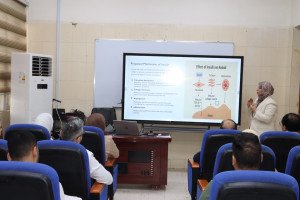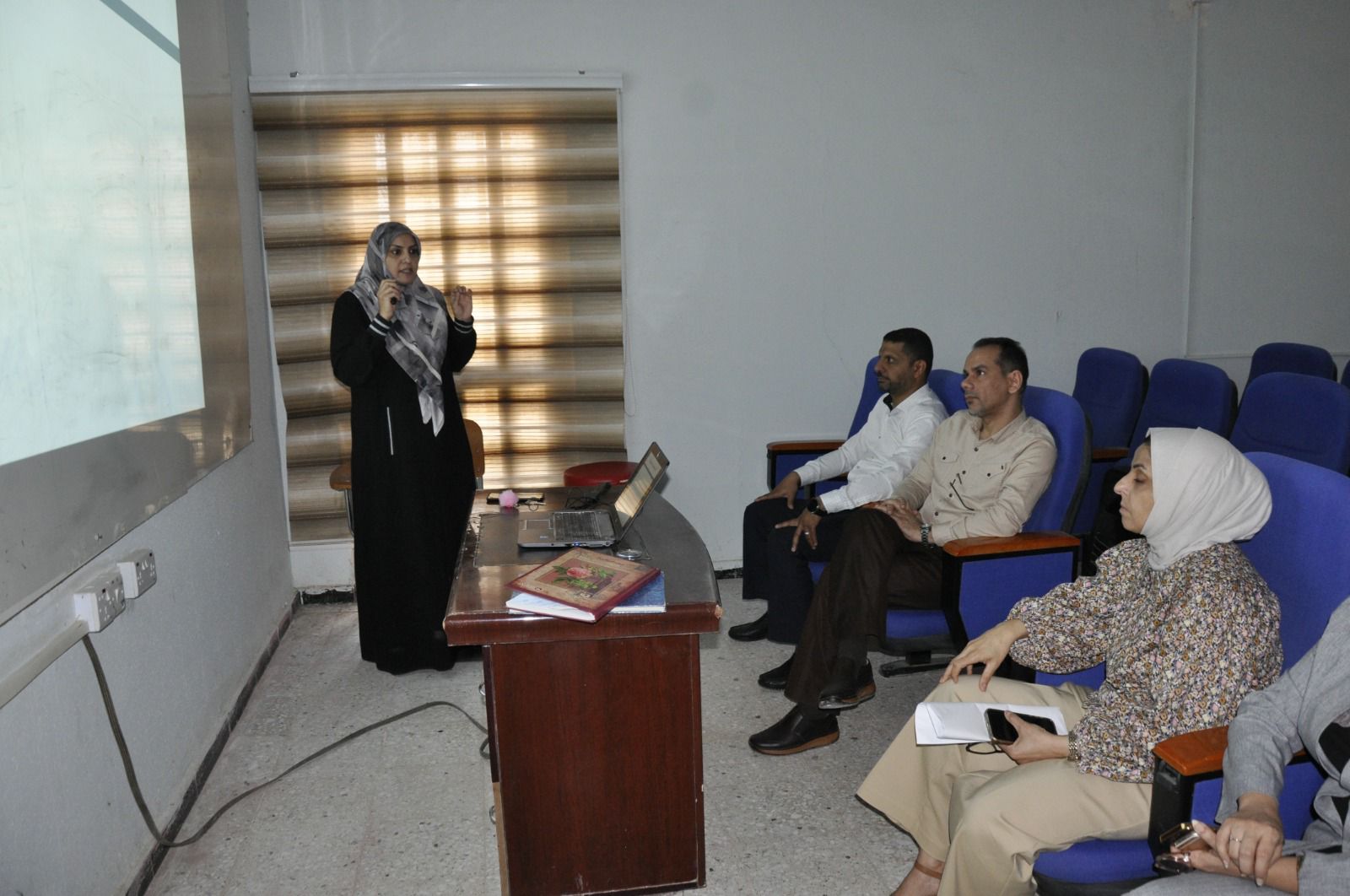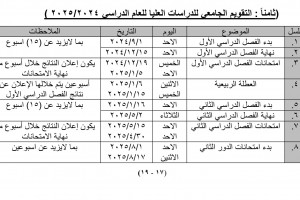
The Clinical Laboratory Sciences Department at the College of Pharmacy at the University of Basrah organized a panel discussion entitled (loss of cell cycle controls in cancer cells) with the participation of researchers and specialists.
The panel discussion included a lecture delivered by Assistant Professor Dr. Rawa Salem Hamid, in which she demonstrated the relationship between cancer cells and the cell cycles, as cancer is one of the most feared diseases of the age, and it is often asked about how this disease occurs, and what are the most important causes that increase cancer cells. risk of developing cancerous tumors.
Cancer begins when a defect or mutation occurs in genes, which affects the normal cell life cycle and turns it into a cancerous cell outside the control of the body, so that cancer cells begin to grow and divide rapidly instead of dying at the specified time.
Genetic mutations lead to the following imbalances: an increase in the production of a type of protein responsible for cell division and growth, a halt in the production of proteins responsible for cell death (apoptosis), and the appearance of abnormal proteins that change the course of cell division and work, and thus the emergence of cancer cells.
Because cancer cells differ from normal cells and do not respond to the body's immune system as well as resistance to apoptosis, cancer cells begin to grow. With the passage of time, the size of the cancerous tumor increases and begins to form its own blood vessels in a process known as angiogenesis, in order to obtain more food and oxygen. Cancer cells also have properties to hide themselves from the immune system and appear outwardly as normal cells, so the immune system cannot recognize and eliminate them.








